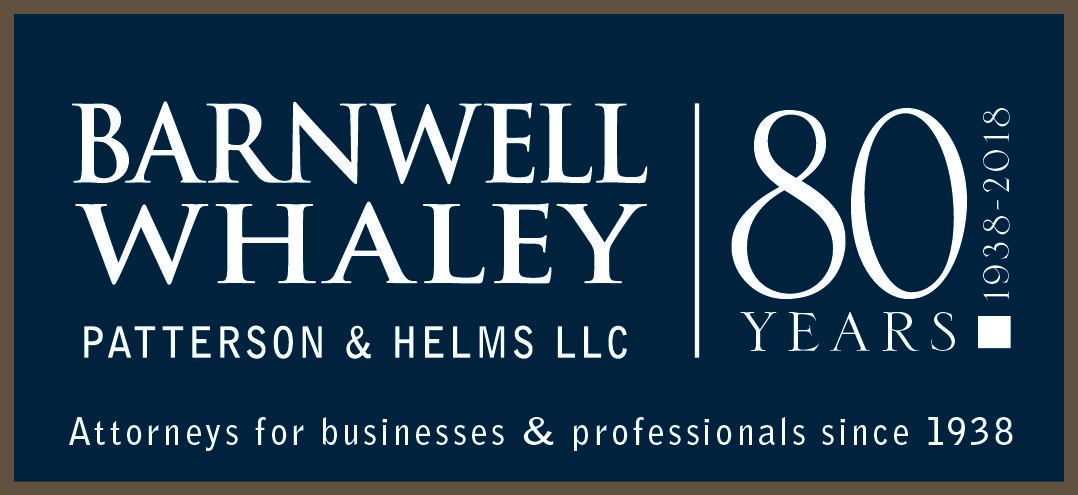
Would You Like Fries with That, um, Nose?
In Easterling v. Burger King. Corp., Opin. No. 5404 (May 18, 2016), the South Carolina Court of Appeals discussed the potential liability of a fast food restaurant after an unruly drive-thru customer decided to “have it his own way” and assaulted another customer, going so far as to bite off the gentleman’s nose. The case provides some insight into the duties of a business to protect its customers from acts of violence by third-persons. In the age of mass shootings and other risks of violence, all businesses must be cognizant of that risk.
Mr. Easterling (“Plaintiff”) placed his order in the drive-thru at a Burger King restaurant in Charleston. Mr. Eastwood (no apparent relation to Clint) was in his truck behind Plaintiff’s car and gave it a bit of a “love tap.” Plaintiff thought nothing of the minor contact, but was surprised to hear Mr. Eastwood honking with his tires spinning and creating an awful amount of smoke. Suddenly, Mr. Eastwood struck Plaintiff’s car much harder, drawing the attention of Burger King staffers.
Plaintiff exited his car to assess the damage and was accosted by Mr. Eastwood. An altercation ensued, and Plaintiff tripped and stumbled down an embankment. In the process, he apparently struck his head and was knocked out. When he came to, he was disturbed to find Mr. Eastwood was on top of him, biting off his nose. The testimony confirmed that the entire incident occurred rather quickly over the course of a few minutes. However, Plaintiff posited that Burger King’s employees failed to respond quickly enough to defuse the incident or get law enforcement involved.
That duty required Burger King to take reasonable action to protect its invitees against the foreseeable risk of physical harm.
Plaintiff sued Burger King. The trial court granted summary judgment to Burger King, and the plaintiff appealed. The Court of Appeals affirmed the entry of summary judgment, rejecting several arguments made by Plaintiff.
First, and most importantly, the Court of Appeals concluded that Burger King did not owe Plaintiff a duty to protect him from the assault by Mr. Eastwood because that risk was not “foreseeable” to Burger King. Plaintiff was a business invitee on Burger King’s premises. This meant that Burger King owed him the strongest standard of care expected of a property owner to an occupant of its property. That duty required Burger King to take reasonable action to protect its invitees against the foreseeable risk of physical harm.
To determine if a risk of harm is sufficiently foreseeable to warrant a duty of care, South Carolina courts balance the degree of foreseeability against the burden of the duty. In other words, the more foreseeable a crime, the more onerous is a business owner’s duty of providing security to prevent it. One significant factor in this calculus is whether (or not) there have been prior criminal incidents.
Plaintiff argued that Burger King knew about more than the risk of a possible injury; rather, it was aware of the specific incident as it was unfolding and failed to act to stop it from coming to fruition. The Court rejected this argument, holding that South Carolina would not impose a duty based upon an imminent event actually occurring on the premises. Instead, the duty could only exist under the balancing test discussed above.
He also pointed out that Burger King was aware of prior crimes at that location. However, the Court of Appeals concluded that such evidence — comprised of an armed robbery several years before, minor car accidents and customers being frustrated by long waits — did not mean that Burger King could foresee the injuries that Mr. Eastwood would cause to Plaintiff. The court also held that, given the limited evidence of prior incidents, Burger King was not required to undertake the significant burden of hiring police officers to patrol the premises. In any event, the court said, given the short time period during which the incident occurred, there was little time for Burger King to do anything to protect Plaintiff.
Second, the Court of Appeals rejected Plaintiff’s argument that Burger King created a danger through the design of its drive-thru, which prevented his safe exit from the situation because of an embankment. The embankment was open and obvious to Plaintiff. Moreover, it was not reasonable to require Burger King to design its drive-thru to prevent an unpredictable violent confrontation between customers. Also, Plaintiff did not need to approach the embankment to escape the situation; his was the first car in line, so he could have just driven away.
Third, Plaintiff argued that Burger King owed him a duty under its own written procedures and policies. However, because he failed to raise that issue sufficiently in the trial court, the Court of Appeals concluded that the issue was waived for purposes of appellate review. While the Court did not rule on this issue, it is surely one that South Carolina’s appellate courts will address some time in the future.
The Easterling case provides some insight for business owners who have customers on their premises. While there is not duty on a business to prevent all attacks on its customers, it does need to take reasonable steps where the burden of such steps is proportionate to the danger. In other words, a business in a high-crime area will have a higher duty than one in a relatively safe part of town. Similarly, a bar would have to take stronger steps to prevent acts of violence than an ice cream parlor. A business where ten assaults occurred over the past year would be under a heavier duty than a business with a 50-year record of absolute peace.
Unfortunately, there is no simple calculation to let a business know where the proper balance lies. The focus must be on taking reasonable steps under the circumstances to protect customers. To protect a business is to realistically analyze the risk of violence considering all relevant factors.

Image of human nose and burger and crown by photodune. JOHN FLETCHER, is an associate attorney, working with the complex civil litigation and appellate practice teams, at Barnwell, Whaley, Patterson and Helms in the Charleston, SC office. The author’s views do not constitute legal advice or representation. Terms of use-disclaimer.




